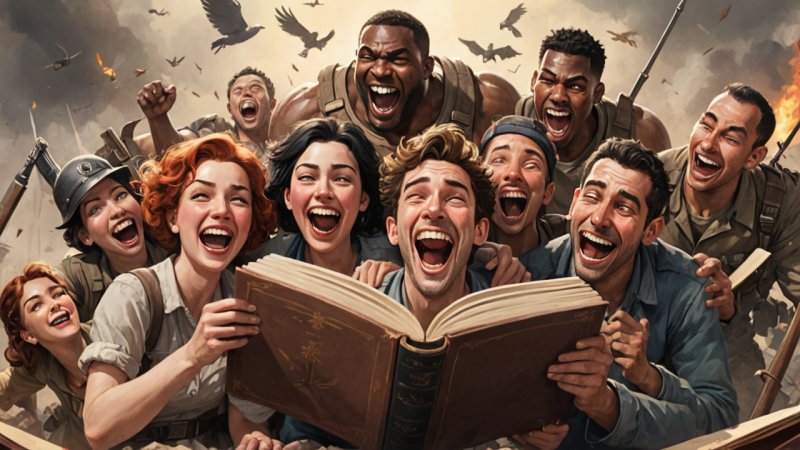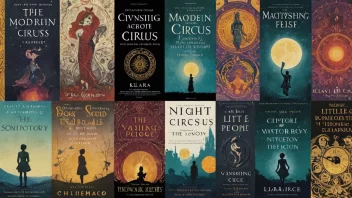In the realm of literature, humor often serves as a surprising yet powerful tool that authors utilize to navigate through heavy themes. While some narratives may delve into serious subjects such as loss, trauma, or societal issues, the infusion of humor can lighten the mood, making the content more accessible and relatable. This article explores how humor functions within fiction to balance gravity with levity, allowing readers to engage with profound topics without being overwhelmed.
One significant aspect of humor in fiction is its ability to create a connection between characters and readers. When authors embed witty dialogue or comical scenarios into their narratives, readers are more likely to empathize with the characters. For instance, in the classic novel The Hitchhiker's Guide to the Galaxy by Douglas Adams, humor is woven throughout the story, allowing readers to process the absurdity of life and the universe. This comedic lens invites readers to reflect on existential themes while simultaneously enjoying the ride.
Furthermore, humor can serve as a coping mechanism for characters dealing with difficult circumstances. In the contemporary novel The Book Thief by Markus Zusak, the narrator, Death, provides darkly humorous commentary that lightens the narrative's heavy themes of war and loss. By using humor, Zusak not only engages his audience but also allows them to confront the harsh realities of life in a more palatable manner.
In addition to character development, humor can enhance the pacing of a narrative. When stories become too intense or somber, comedic elements can provide a necessary pause, allowing readers to catch their breath before diving back into the emotional depths of the plot. This technique is effectively employed in Catch-22 by Joseph Heller, where the absurdity of war is highlighted through satirical humor, ensuring that moments of tension are balanced with levity.
Moreover, humor encourages critical thinking and reflection. When an author presents serious issues through a humorous lens, it prompts readers to examine their own perceptions and biases. For example, in Slaughterhouse-Five by Kurt Vonnegut, the blend of humor and tragedy invites readers to reconsider the absurdities of war and fate, challenging them to think critically about these complex themes.
In conclusion, the role of humor in fiction cannot be understated. It acts as a bridge between heavy themes and reader engagement, fostering empathy and understanding. By incorporating humor, authors can tackle profound subjects in a way that resonates with readers, allowing them to explore the intricacies of life without being overwhelmed. As we continue to delve into literature, let us appreciate the power of humor as a vital tool in storytelling, transforming our reading experience and enriching our understanding of the human condition.






